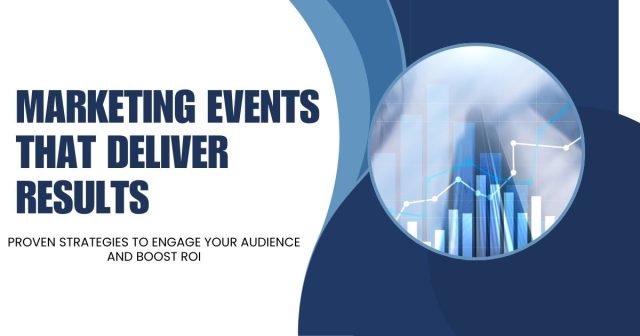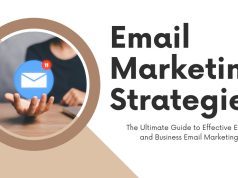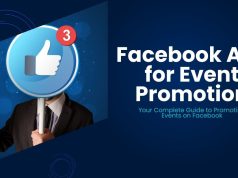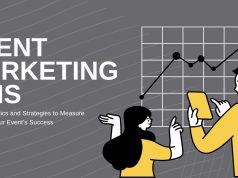Digital marketing events boost brand awareness and lead generation. Success comes from clear goals, engaging content, effective promotion, and interactive experiences. Post-event follow-up, content reuse, and AI-driven insights maximize impact and ROI.
Digital marketing events have become powerful tools for building brand awareness, generating leads, and establishing thought leadership. Whether you’re planning a virtual conference, webinar series, or hybrid gathering, the right strategy can transform your event into a catalyst for business growth.
This comprehensive guide will walk you through every step of creating a successful digital marketing event, from initial planning to post-event follow-up. You’ll discover proven strategies for audience engagement, content creation, and measuring ROI that top marketers use to maximize their event impact.
Define Your Event Goals and Target Audience
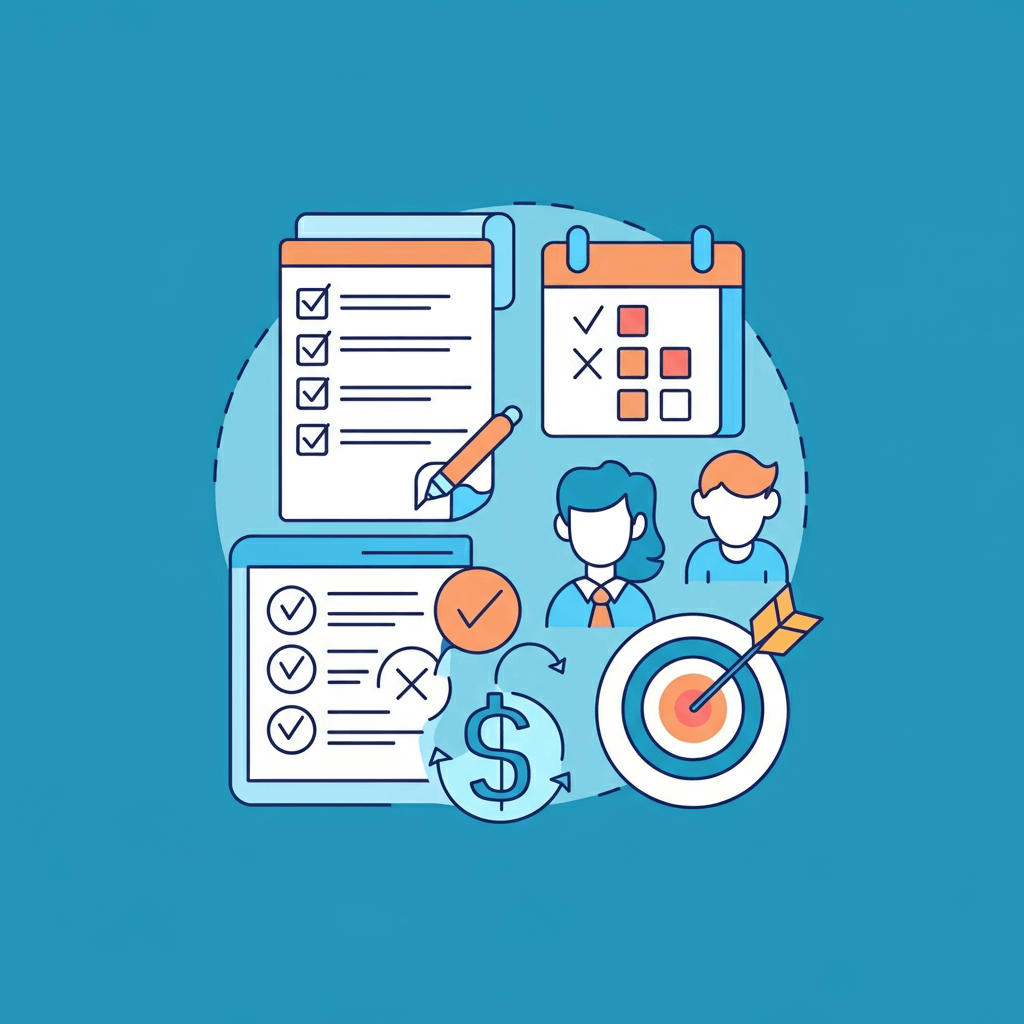
Before diving into logistics, establish clear objectives for your digital marketing event. Are you looking to generate qualified leads, launch a new product, or position your brand as an industry authority? Your goals will shape every decision moving forward.
Setting SMART Event Objectives
Create specific, measurable goals that align with your broader marketing strategy. For example:
- Generate 500 new email subscribers
- Secure 50 qualified sales leads
- Achieve 1,000 live attendees with 70% engagement rate
- Drive $25,000 in direct event revenue
Understanding Your Ideal Attendee
Research your target audience’s preferences, pain points, and content consumption habits. Survey existing customers, analyze competitor events, and review industry reports to build detailed attendee personas. This insight will inform your content strategy, promotional channels, and overall event experience.
Choose the Right Event Format and Platform
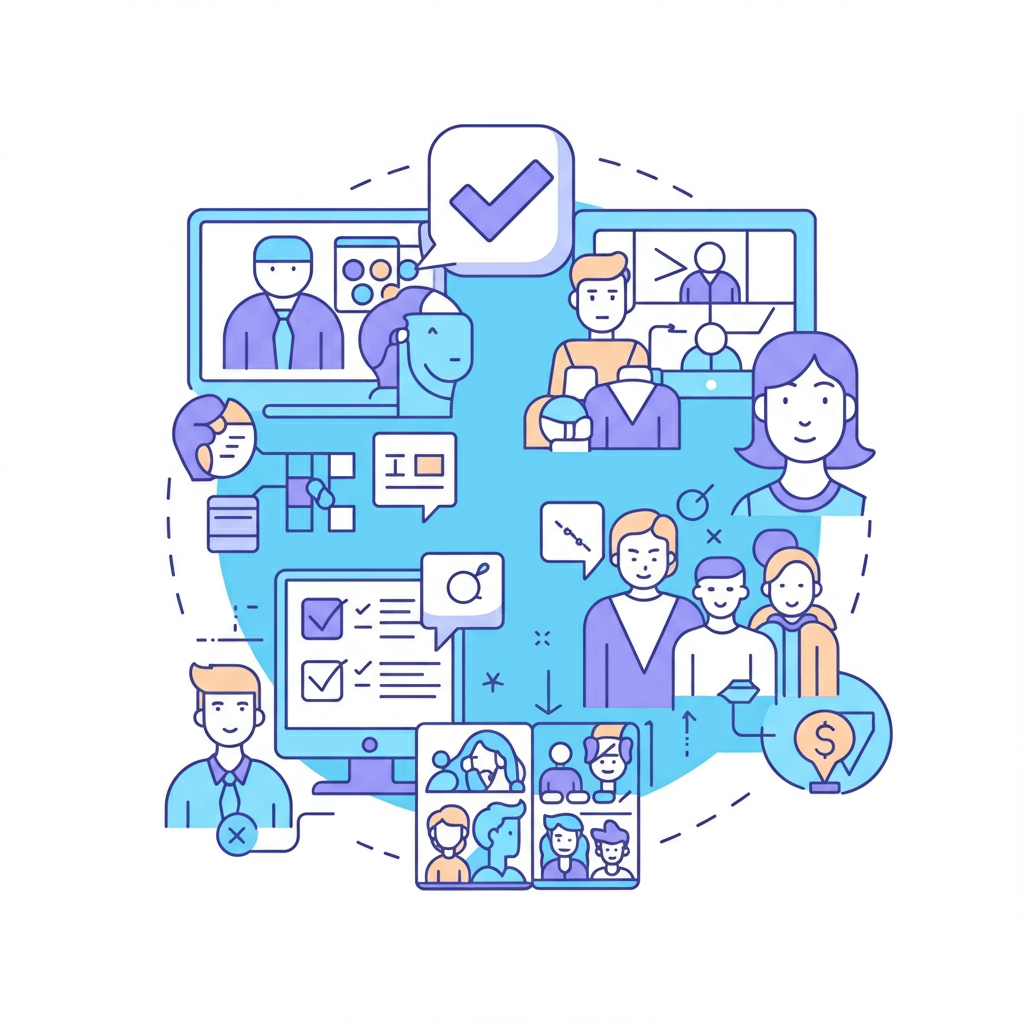
The format you select dramatically impacts attendee experience and your event marketing success. Consider your audience size, content complexity, and interaction goals when making this decision.
Popular digital event formats include webinars, virtual conferences, hybrid events, and live streaming sessions. For innovative tech-driven engagement, explore augmented reality in marketing to engage audiences.
Popular Digital Event Formats
Webinars work well for educational content and smaller audiences (50-500 attendees). They’re cost-effective and allow real-time Q&A sessions.
Virtual conferences accommodate larger audiences and multiple speakers. These multi-day events can include breakout sessions, networking opportunities, and sponsor exhibitions.
Hybrid events combine in-person and virtual elements, expanding your reach while maintaining personal connections.
Live streaming sessions offer authentic, real-time engagement perfect for product demonstrations or behind-the-scenes content.
Platform Selection Criteria
Evaluate platforms based on:
- Maximum attendee capacity
- Interactive features (polls, chat, breakout rooms)
- Registration and payment processing
- Analytics and reporting capabilities
- Mobile compatibility
- Integration with your existing marketing stack
Popular options include Zoom Events, Hopin, ON24, and BigMarker, each offering unique strengths for different event types.
Develop Compelling Content and Speaker Lineup
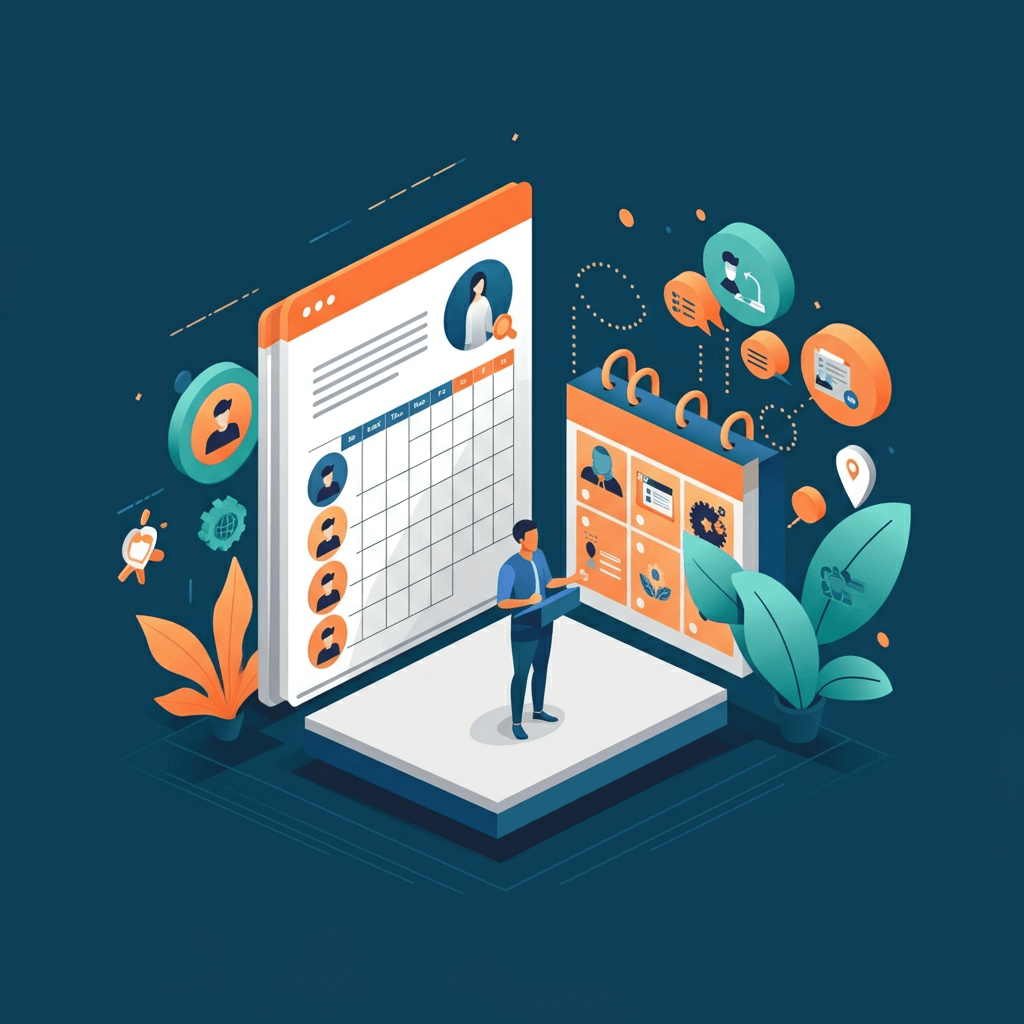
Content quality determines whether attendees stay engaged or abandon your event midway. Focus on delivering actionable insights rather than promotional material.
Content Planning Framework
Structure your content around the customer journey. Early sessions might address awareness-stage challenges, while later presentations can dive into specific solutions and implementation strategies.
Create a content calendar that balances different formats:
- Keynote presentations for big-picture insights
- Panel discussions for diverse perspectives
- Interactive workshops for hands-on learning
- Case study presentations for real-world applications
Speaker Selection and Preparation
Choose speakers who bring credibility and expertise to your event marketing strategy. Provide them with clear presentation guidelines, technical requirements, platform training, and audience insights. Explore tips in our AI event marketing personalization guide for leveraging technology to enhance speaker engagement.
Provide speakers with:
- Clear presentation guidelines and time limits
- Technical requirements and platform training
- Audience insights and engagement expectations
- Marketing materials to promote their participation
Create a Multi-Channel Promotional Strategy
Successful event marketing requires consistent promotion across multiple touchpoints. Start your campaign 6-8 weeks before the event date to build momentum.
Email Marketing Campaign
Develop a series of promotional emails targeting different audience segments:
- Save-the-date announcements
- Speaker spotlights and agenda reveals
- Early bird discount offers
- Reminder sequences leading up to the event
Social Media Promotion
Create platform-specific content for LinkedIn, Twitter, Facebook, and Instagram. Share speaker quotes, behind-the-scenes content, and countdown posts to build anticipation.
Use event-specific hashtags and encourage speakers to share promotional content with their networks.
Content Marketing Integration
Publish blog posts, podcast episodes, and video content related to your event themes. This content should provide value independently while driving event registrations.
Partner and Influencer Collaboration
Leverage partnerships with industry associations, complementary brands, and influencers to expand your reach. Offer exclusive content or networking opportunities in exchange for promotional support.
Design an Engaging Attendee Experience
Keep attendees actively participating throughout your digital marketing event. Passive viewing leads to drop-offs and reduced value perception.
Pre-Event Engagement
Send welcome packages with event schedules, speaker information, and exclusive resources. Create private communities or discussion groups where attendees can network before the event begins.
Real-Time Interaction Features
Incorporate polls, Q&A sessions, chat discussions, and virtual networking breaks. Gamification elements like scavenger hunts or knowledge challenges can boost engagement rates.
Technical Considerations
Ensure your platform can handle expected traffic without performance issues. Conduct technical rehearsals with all speakers and have backup plans for common technical problems.
Provide clear instructions for accessing the event, including troubleshooting guides and contact information for technical support.
Post-Event Strategies: Maximizing Impact and Extending Engagement
The success of a digital marketing event isn’t measured solely by live attendance. Post-event strategies are crucial to extending the life of your content, nurturing leads, and reinforcing your brand’s authority. Thoughtful follow-up ensures that the effort invested in planning and executing the event translates into measurable business outcomes.
Repurposing Event Content
Every digital marketing event generates a wealth of valuable content, from keynote presentations and panel discussions to live polls and Q&A sessions. Repurposing this content allows you to reach new audiences and continue driving engagement long after the event concludes.
For instance, recorded sessions can be turned into on-demand webinars or uploaded to your company’s YouTube channel for ongoing educational value. Key insights from panel discussions can be converted into blog posts, infographics, or downloadable guides. Social media snippets, including speaker quotes, polls, or highlights from discussions, can maintain visibility and engagement for weeks after the event.
Repurposing event content allows you to reach new audiences long after the event ends. Convert sessions into on-demand webinars, blog posts, infographics, or social media snippets. Explore event marketing automation to boost ROI for strategies to streamline post-event follow-up.
Lead Nurturing and Relationship Building
Post-event is the perfect time to move attendees further down your marketing funnel. Attendees have already demonstrated interest by registering and participating, so your goal is to convert that engagement into tangible business outcomes.
Start with personalized follow-ups. Send thank-you emails highlighting key event takeaways, linking to on-demand session recordings, and providing additional resources relevant to their interests. Segment leads based on engagement levels during the event—such as poll participation, session attendance, or questions asked—and tailor your messaging to address their specific needs.
Offer post-event consultations, product demos, or exclusive content to continue the conversation. This personalized attention builds trust and positions your brand as a partner invested in solving your audience’s problems rather than just selling a product.
Measuring Long-Term Impact
Analyzing post-event performance goes beyond simple metrics like attendance and registration. Consider long-term indicators of success, such as:
- Engagement with repurposed content (downloads, views, shares)
- Lead conversion rates and revenue generated from post-event follow-ups
- Social media amplification and new audience growth
- Feedback from attendees regarding their overall experience and perceived value
These insights inform future event planning, allowing you to optimize content, formats, and engagement strategies for even greater impact.
Building a Community Around Your Events
A powerful trend in digital marketing events is the creation of ongoing communities. By fostering connections among attendees, speakers, and your brand, you transform one-time participants into loyal advocates.
Consider hosting a private LinkedIn or Slack group for attendees, where discussions from the event can continue and new insights can be shared. Encourage peer-to-peer interaction, invite speakers to answer follow-up questions, and share exclusive content with community members. This sense of belonging strengthens engagement, enhances brand loyalty, and provides a continuous source of leads for future events.
Implement Lead Generation and Data Collection
Transform event attendees into marketing qualified leads through strategic data collection and nurturing processes.
Registration Optimization
Design registration forms that capture essential lead information without creating friction. Progressive profiling allows you to gather additional data over time rather than overwhelming initial registrants.
During-Event Lead Capture
Use interactive features to identify highly engaged prospects. Monitor chat participation, poll responses, and session attendance to score lead quality.
Offer exclusive resources, consultations, or demos in exchange for contact information and qualification details.
Integration with Sales Processes
Connect your event platform with your CRM system to automatically sync attendee data and engagement metrics. This integration enables immediate follow-up while the event experience is fresh in prospects’ minds.
Measure Success and Calculate ROI
Track both quantitative metrics and qualitative feedback to evaluate your digital marketing event performance.
Key Performance Indicators
Monitor registration numbers, actual attendance rates, engagement levels, and post-event survey responses. Track lead generation metrics including cost per lead and lead-to-customer conversion rates.
Revenue Attribution
Calculate direct event revenue from ticket sales, sponsorships, and immediate product purchases. Track longer-term revenue attribution through CRM integration and sales team feedback.
Audience Feedback Analysis
Survey attendees about content quality, speaker effectiveness, and overall experience satisfaction. This feedback guides improvements for future events and helps demonstrate value to stakeholders.
Leveraging Analytics and AI to Optimize Digital Marketing Events

In today’s digital-first landscape, data-driven decision-making is critical to maximizing the impact of your marketing events. Analytics and artificial intelligence (AI) allow you to understand attendee behavior, personalize experiences, and continuously improve your event strategy.
Real-Time Analytics for Smarter Decision-Making
Modern event platforms provide a wealth of real-time data that can inform your decisions during the event itself. Metrics such as session attendance, participation in polls or Q&A, chat activity, and engagement with downloadable resources allow you to gauge audience interest and adjust accordingly.
For example, if a breakout session shows low engagement, you might extend a more popular session, introduce an interactive poll, or reallocate speakers to maintain interest. Real-time analytics also help identify high-potential leads who are most engaged, allowing your sales or follow-up teams to prioritize outreach immediately.
Enhancing Networking and Matchmaking
Networking is a key value proposition of digital events, and AI can facilitate meaningful connections among attendees. Platforms now use algorithms to match participants based on shared interests, professional backgrounds, or event goals.
Smart matchmaking increases the likelihood of valuable conversations, business partnerships, and long-term engagement. AI-powered networking also provides analytics on connections made, follow-ups initiated, and interaction quality, giving you insights into the ROI of networking components.
Optimizing Post-Event Follow-Up
AI doesn’t stop when the event ends. Post-event, it can segment attendees based on engagement levels, content interests, and predicted conversion potential. Automated workflows can send personalized follow-up emails, recommend specific content, or schedule one-on-one consultations with high-value leads.
This ensures your follow-up strategy is both efficient and highly targeted, turning a single event into a long-term pipeline of leads and loyal customers.
Transform Your Event Marketing Strategy
Digital marketing events offer unparalleled opportunities to connect with prospects, customers, and industry peers. The key lies in thorough planning, compelling content creation, and seamless execution that prioritizes attendee value over promotional messaging.
Start planning your next event by defining objectives, choosing the right format, and developing a promotional strategy. Remember, success extends beyond the live experience; follow-up and relationship building are critical. Explore digital event marketing guide for additional tools and best practices.
Remember that successful event marketing extends beyond the live experience. Your follow-up strategy and long-term relationship building determine whether your event generates lasting business impact or becomes a forgettable one-time interaction.
Frequently Asked Questions (FAQ)
How soon should I follow up with attendees after a digital marketing event?
Ideally, within 24-48 hours. Prompt follow-up capitalizes on attendees’ engagement while the event experience is still fresh in their minds, increasing the likelihood of conversion and feedback participation.
What types of content should I repurpose from an event?
Any content that delivers value to your audience can be repurposed. This includes recorded sessions, key takeaways, quotes, infographics, polls, presentations, and even Q&A discussions. Repurposing diversifies your content strategy and extends your event ROI.
How can I measure the ROI of a virtual or hybrid event?
ROI can be assessed through quantitative metrics like registrations, attendance rates, leads generated, revenue attributed, and engagement with repurposed content. Qualitative metrics, such as attendee satisfaction, brand perception improvement, and networking effectiveness, are also essential for a full picture of impact.
What strategies help maintain attendee engagement post-event?
Provide on-demand access to sessions, personalized follow-ups, exclusive downloadable resources, and interactive communities for ongoing discussions. Encouraging continued participation reinforces relationships and keeps your brand top-of-mind.
How can I turn one-time event attendees into a long-term community?
Offer platforms for continuous interaction, such as social media groups, forums, or email communities. Provide ongoing valuable content, host follow-up Q&A sessions or webinars, and encourage networking among participants to create a sense of belonging and loyalty.

